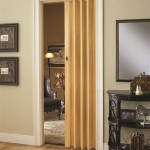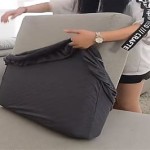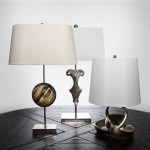Is Interior Define Going Out of Business? A Deep Dive into the Shutdown
Interior Define, a company that once promised to revolutionize the furniture industry with its customizable sofas and direct-to-consumer model, abruptly ceased operations in late January 2024. This closure left many customers with unfulfilled orders, employees without jobs, and industry observers questioning the viability of the direct-to-consumer (DTC) furniture business model. This article will explore the circumstances leading to Interior Define's collapse, the impact on its stakeholders, and the broader implications for the future of furniture retail.
The company's rise was initially meteoric. Founded in 2014, Interior Define aimed to disrupt the traditional furniture shopping experience. Customers could design their own sofas online or in showrooms, selecting from a variety of fabrics, leg styles, depths, and configurations. This level of customization, coupled with a relatively accessible price point, appealed to a demographic seeking personalized home furnishings without the markups associated with traditional retailers. Interior Define's showrooms, often referred to as "guideshops," offered a physical touchpoint that mitigated the inherent risk of purchasing furniture online. These guideshops allowed customers to experience the quality of the materials and sit on different sofa styles before making a purchase.
However, beneath the surface of apparent success, challenges were brewing. Supply chain disruptions, rising material costs, and increased competition in the DTC furniture market all contributed to Interior Define's downfall. The company's reliance on overseas manufacturing, particularly in Asia, made it vulnerable to the global supply chain issues that plagued many businesses during the COVID-19 pandemic. These disruptions led to significant delays in order fulfillment, frustrating customers and damaging the company's reputation.
Adding to the company's woes was the increasing cost of materials, especially foam and fabric. These cost increases squeezed profit margins and forced Interior Define to raise prices, making its products less competitive. Simultaneously, the DTC furniture market became increasingly crowded, with established players and new entrants vying for market share. This intensified competition further eroded Interior Define's profitability.
On January 29, 2024, Interior Define officially announced it was ceasing operations. The announcement, delivered via email to customers and employees, cited "significant business challenges" as the reason for the shutdown. The company stated that it was exploring options, including a potential sale or restructuring, but ultimately failed to secure the necessary funding or find a viable path forward. This sudden closure left thousands of customers in limbo, many having paid substantial deposits for sofas that would never be delivered.
Unfulfilled Orders and Customer Frustration
The most immediate and devastating consequence of Interior Define's closure was the impact on its customers. Many individuals and families had placed orders months in advance, trusting the company to deliver their customized furniture. These customers were left with unfulfilled orders, unpaid deposits, and a significant void in their homes. The lack of clear communication from Interior Define regarding the status of refunds or alternative solutions further amplified customer frustration and anger.
Social media platforms and online forums became flooded with complaints from affected customers. Many recounted their experiences of lengthy delays, poor customer service, and ultimately, the disappointment of never receiving their furniture. The absence of a functioning customer support system made it difficult for customers to obtain information or seek recourse. The Better Business Bureau also received a surge of complaints against Interior Define, further highlighting the widespread dissatisfaction.
The legal avenues available to these customers remain uncertain. Filing individual lawsuits against a defunct company is often a costly and time-consuming process with an uncertain outcome. Some customers are exploring the possibility of filing a class-action lawsuit, which would allow them to pool their resources and pursue legal action collectively. However, even a successful lawsuit may not guarantee full restitution, as Interior Define's assets are likely to be limited.
Employee Displacement and Job Losses
In addition to the impact on customers, Interior Define's closure resulted in the displacement of hundreds of employees. These individuals, many of whom were passionate about the company's mission and products, suddenly found themselves without jobs. The closure came as a shock to many employees, who had been given little or no warning about the company's imminent demise.
The job losses affected employees across various departments, including sales, customer service, design, and operations. The sudden loss of income created significant financial hardship for many families. Furthermore, the closure occurred during a period of economic uncertainty, making it more challenging for displaced employees to find new employment opportunities.
The situation raised concerns about the responsibilities of companies to their employees during times of financial distress. While businesses are not always obligated to provide advance notice of layoffs, ethical considerations often dictate that they should strive to communicate transparently and provide support to affected employees. In the case of Interior Define, the abrupt nature of the closure left many employees feeling betrayed and abandoned.
The Sustainability of the Direct-to-Consumer Furniture Model
Interior Define's collapse has raised serious questions about the long-term sustainability of the direct-to-consumer furniture model. While the DTC approach offers certain advantages, such as increased customization and lower prices, it also presents significant challenges. These challenges include managing complex supply chains, maintaining profitability in a competitive market, and building trust with customers who are purchasing furniture online.
The furniture industry is inherently complex, involving the sourcing of raw materials, manufacturing, logistics, and delivery. DTC furniture companies often rely on overseas manufacturing to reduce costs, which can make them vulnerable to supply chain disruptions. Furthermore, the rising cost of materials and transportation has put pressure on profit margins, making it difficult for DTC companies to compete with traditional retailers.
Building trust with customers is also crucial for DTC furniture companies. Customers are often hesitant to purchase furniture online without seeing it in person and experiencing its quality. While showrooms can help to mitigate this risk, they also add to the company's overhead costs. Furthermore, providing excellent customer service is essential to building brand loyalty and retaining customers in the competitive DTC market.
The future of the DTC furniture market remains uncertain. While some companies may continue to thrive by focusing on niche markets or offering unique products, others may struggle to survive in the face of increasing competition and economic challenges. The lessons learned from Interior Define's collapse highlight the importance of careful planning, sound financial management, and a strong commitment to customer service.
Ultimately, the Interior Define saga serves as a cautionary tale for both businesses and consumers. It underscores the risks associated with rapidly scaling a business in a volatile market, the importance of transparent communication, and the need for consumers to exercise caution when making large purchases from online retailers.

Interior Define

Design Firm Havenly Steps Into Retail With The Citizenry And Interior Define

Interior Define

Interior Define

Sitting Room Makeover We Did It All In One Day Bower Power
Brand We Love Interior Define Havenly

Design Plan Our New Family Room Elizabeth Street Post
Interior Define Latest Emails S Deals

Sofa Guide For 2024 Reviews By Wirecutter

Sofa Guide For 2024 Reviews By Wirecutter








